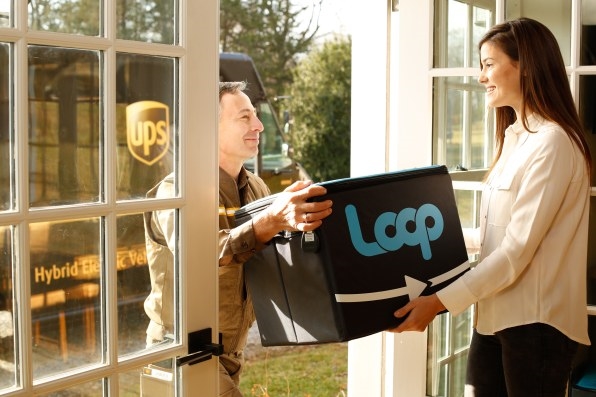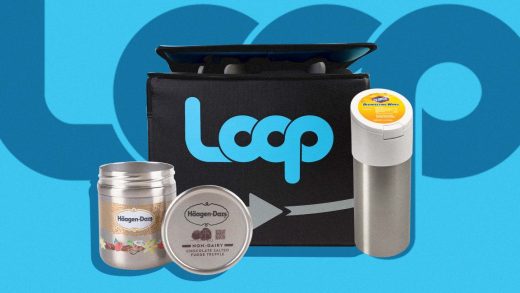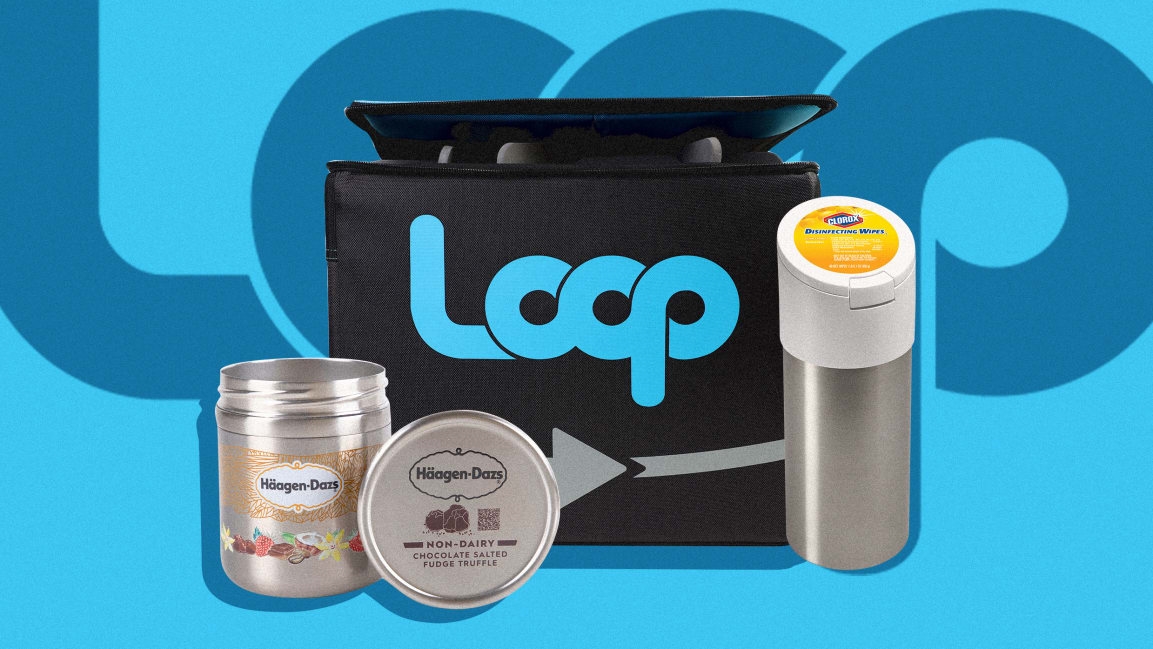Loop’s zero-waste everyday product delivery service is expanding to the whole U.S.
If you’ve started buying basic supplies like shampoo and toothbrushes online during the pandemic, you may notice that you’re creating a lot of extra waste in your house. But soon you’ll also be able to buy versions that come with sustainable, reusable packaging. Loop, the milkman-style platform that partners with big brands to offer subscriptions to common products like Tide detergent in reusable packaging, will expand its delivery service across the contiguous U.S. early this summer.
The startup, which began its first pilots in and around New York City and Paris in 2019, has seen record sales in March and April as consumers have turned to e-commerce to avoid shopping in crowded stores. The expansion is a response to demand from customers, but also offers an alternative to recycling at a time when the recycling industry is struggling even more than it already was.

“We’re in a waste crisis,” says Tom Szaky, Loop’s CEO, who is also CEO of Terracycle, the recycling company that first helped launch the new platform. “That’s only worse because of COVID. During COVID, recyclers are hurting even more because oil is at an extreme low, so it makes it hard for recyclers to compete. And many are struggling because of health and safety—recycling is crashing during COVID.”
Instead of shipping products in packages designed for a single use before recycling (or going straight to landfill), the platform sells products in packages designed for multiple reuses. When a container is empty, a consumer drops it in a shipping tote, schedules a pickup, and then sends the packaging back to be fully sterilized and then repackaged for another customer.

Reuse has faltered in some cases during the coronavirus outbreak—some grocery stores have banned reusable bags, and some coffee shops have stopped reusable cup programs. But Szaky says that hasn’t been the case for Loop. “We’re learning that consumers are comfortable with reuse during COVID, which is very important,” he says. “If you give a coffee cup to a barista at a Starbucks, it has no dwell time, no health and safety protocol, and no cleaning. So it’s pretty bad. In Loop, it’s a professional reuse system, which has all of those three things in a very, very big way.”
The platform now offers around 200 products that major brands have redesigned for reuse, either in the packaging or the product itself. A new toothbrush from Oral B called Clic has a reusable base and a head that snaps off to be sent back for recycling. Pantene shampoo comes in a lightweight aluminum bottle instead of plastic. Puretto, Loop’s in-house brands, sells snacks like chips and pretzels in stainless steel tubs instead of plastic bags. The design process for each item takes months; a tub designed for Häagen-Dazs ice cream, for example, uses a unique structure that works in the system, but also keeps ice cream colder longer. Four hundred brands have now signed onto the platform and are working through the process of developing new packaging for their products.
As the company tracks where orders are most popular across the country, that will help its retail partners—Kroger and Walgreens—decide where to prioritize offering the same platform in stores later this year.
(37)



